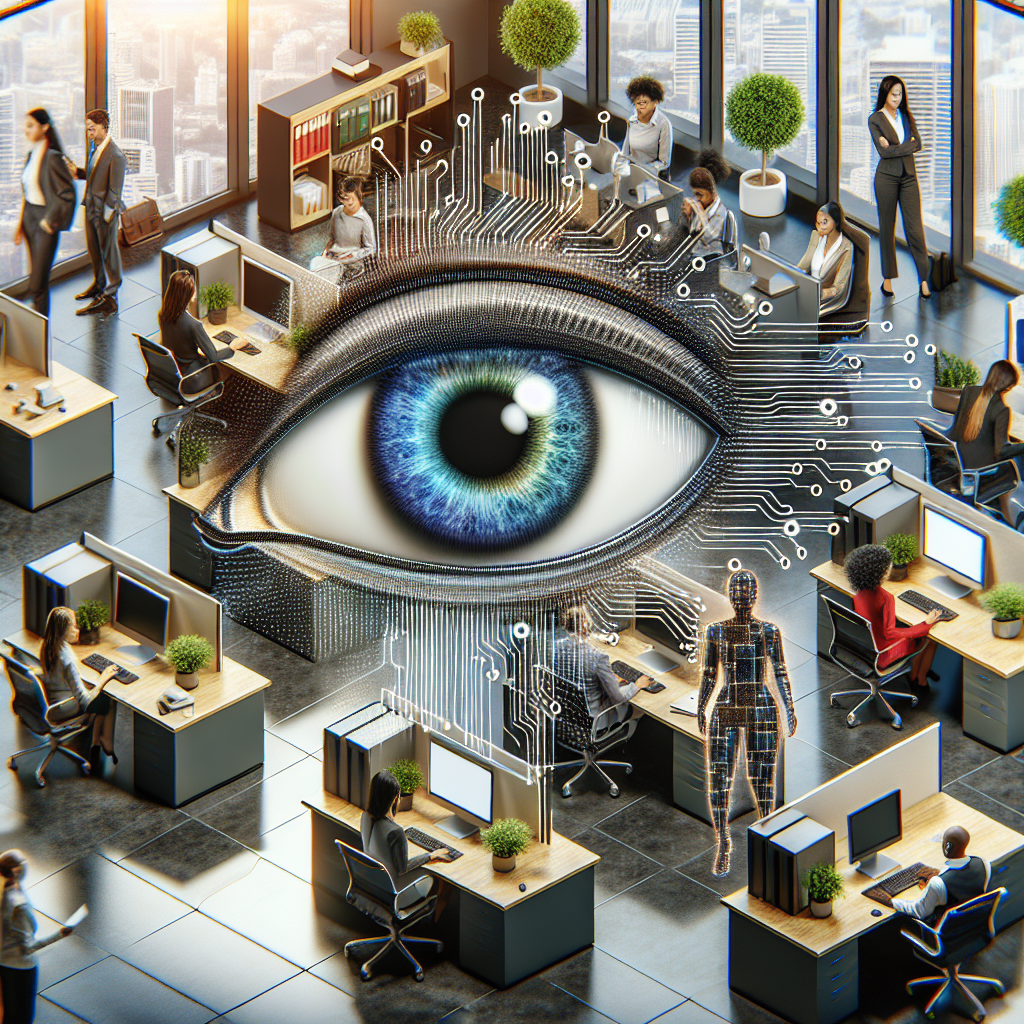In recent years, artificial intelligence (AI) has been rapidly advancing and transforming various industries, including the way businesses operate and manage their employees. While AI has brought many benefits and efficiencies to the workplace, it has also raised concerns about employee privacy rights. As companies increasingly rely on AI technologies to collect, analyze, and make decisions based on vast amounts of data, employees are becoming more vulnerable to potential privacy violations. In this article, we will explore the impact of AI on employee privacy rights and discuss the implications for both employers and employees.
The use of AI in the workplace has become increasingly common, with companies using AI-powered tools for a wide range of tasks, from recruitment and performance evaluation to monitoring employee behavior and productivity. While these technologies can help businesses make more informed decisions and improve efficiency, they also raise important questions about the protection of employee privacy rights.
One of the main concerns surrounding the use of AI in the workplace is the potential for invasive monitoring of employees. AI-powered tools can track and analyze various aspects of employees’ behavior, such as their emails, internet usage, and even their physical movements. This level of surveillance can raise concerns about employee privacy and autonomy, as well as the potential for discrimination or bias in decision-making processes.
Another issue is the potential for data breaches and misuse of employee data. As companies collect and store vast amounts of data on their employees, there is a risk that this information could be accessed or used inappropriately. AI technologies can also make it easier for companies to analyze and profile employees based on their personal data, raising concerns about the potential for discrimination or unfair treatment.
Furthermore, the use of AI in decision-making processes can also raise concerns about transparency and accountability. AI algorithms are often complex and opaque, making it difficult for employees to understand how decisions are being made and whether they are being treated fairly. This lack of transparency can erode trust between employers and employees, as well as create challenges for employees seeking to challenge decisions that may be based on biased or inaccurate data.
In response to these concerns, some countries have implemented regulations to protect employee privacy rights in the age of AI. For example, the General Data Protection Regulation (GDPR) in the European Union provides a framework for companies to ensure the protection of personal data, including employee data. Companies are required to obtain consent from employees before collecting and using their data, as well as to provide transparency about how data is being processed and shared.
However, despite these regulations, the use of AI in the workplace continues to raise important questions about the balance between employee privacy rights and the need for companies to innovate and remain competitive. As AI technologies continue to evolve and become more sophisticated, it is important for employers to consider the ethical implications of their use and to ensure that employees’ privacy rights are protected.
FAQs:
Q: Can employers use AI to monitor employees’ emails and internet usage?
A: Employers can use AI-powered tools to monitor employees’ emails and internet usage, but they must comply with relevant privacy regulations and obtain consent from employees before doing so. Employers should also be transparent about how data is being collected and used, and should only use monitoring tools for legitimate business purposes.
Q: Can employers use AI to make decisions about hiring and promotion?
A: Employers can use AI to assist in decision-making processes related to hiring and promotion, but they must ensure that these tools are free from bias and discrimination. Employers should also provide transparency about how decisions are being made and allow employees to challenge decisions that may be based on inaccurate or biased data.
Q: What are employees’ rights regarding the use of AI in the workplace?
A: Employees have the right to privacy and data protection in the workplace, which includes the right to be informed about how their data is being collected and used, the right to access their personal data, and the right to challenge decisions made about them based on AI technologies. Employees should also be aware of their rights under relevant privacy regulations and be proactive in protecting their privacy rights.
Q: How can employers ensure that employee privacy rights are protected in the age of AI?
A: Employers can protect employee privacy rights by implementing clear policies and procedures for the collection and use of employee data, obtaining consent from employees before collecting their data, and providing transparency about how data is being processed and shared. Employers should also ensure that AI technologies are free from bias and discrimination and that employees have the right to challenge decisions made about them based on AI algorithms.

